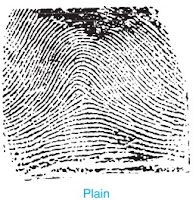5 Strange habits of Einstein that made him Genius
Some say that great minds think alike, and that's up for debate, but they seem to have one thing in common- they have some strange habits. Albert Einstein, one of the smartest people ever, had a lot of quirks, like not wearing socks and napping with a metal spoon in his hands. Can you become a genius if you follow his example? Let's find out...
His thoughts were so important for him that any issue even annoying socks wasn't worth the distraction. He just couldn't stand it. So, socks were immediately banned for life.
If you've ever tried building your own card house, you know much patience and concentration this process takes. I'm not saying you have to start building houses of cards to become a genius, but there's one important point about this habit that's worth a closer look.
We all know that a healthy night of sleep is good for your brain. But generally, 7 to 9 hours is enough. Still, it's important to remember that we're all different. For some of us, 6 hours are alright and others need all 10, like Einstein.
You see, Einstein had a strange routine linked to his daily naps, While he drifted into dreamland, he held a metal spoon in his hand and had a metal plate lying on the floor right underneath the spoon. When he fell asleep he would drop the spoon on the plate. The resulting sound was enough to wake him up immediately.
At first, young Einstein couldn't stand it, but when he was 13, he heard Mozart for the first time and fell in love with it. After that, he never stopped playing the violin again. We all have something to learn from that. Despite his first reaction, Einstein was curios enough to change his mind about violin playing.
Tired of doing maths? Play guitar!
Tried of playing guitar? Go for a walk, tryout some photography.
Our brain love when we switch from work to abstract, visual and audible information. But don't forget,a normal rest in the form of healthy sleep can't be replaced by anything. Albert Einstein sure knew that as well!
In fact, this boredom is what Einstein loved about his work. When we're doing something monotonous that doesn't require any skill or mastery, our brain quickly adapts to it, Soon we learn to follow the routine without even thinking. This allows our thoughts to drift freely from one thing to another.
Albert Einstein had no recipe for his genius, after all, he just followed his needs, One especially important need, to be precise: the need to be left alone with his thoughts and to constantly change his perspective and thought process on this that bother him. To put it simply, he just wanted to be free in his thoughts which helped him develop theories that changed science forever.
What's more important about adopting habits is improving yourself. Getting good sleep, taking a daily walk, or starting to play a musical instrument are not bad places to start at all.
So, what habits helped you to achieve some brilliant result in your life? Let us know down below. If you learned something new today then share this article with your friends.
Post credit- BRIGHT SIDE
Cheers,
sciencedoze.com
1. No Socks
Yes, Albert Einstein hate socks for some reason. He never wore them at all. He wrote once in a letter to his wife, Elsa, that he had to wear high boots all the time just to hide his bare feet.How could that benefit him?
Not much probably, but at least he had a reasonably strong immune system to stand against cold weather haha. Jokes apart, the only reason Albert Einstein didn't wear socks was because in his childhood, it took him just a day or two to make a hole in a new sock and that says something about Albert Einstein's mind.His thoughts were so important for him that any issue even annoying socks wasn't worth the distraction. He just couldn't stand it. So, socks were immediately banned for life.
2. Building houses of cards
Another habit that Albert Einstein adopted in his childhood was building houses of cards. One time he even built a 14 story house!If you've ever tried building your own card house, you know much patience and concentration this process takes. I'm not saying you have to start building houses of cards to become a genius, but there's one important point about this habit that's worth a closer look.
When our brain is busy with something mechanical, it sets free our ability of abstract thinking. The more concentration needed, greater the possible effect will be! Not everything going on your brain has to have some kind of immediate significance. It's never wasteful to keep your mind busy. Something like building a house of cards suits this purpose perfectly.
3. Sleeping 10 hours a day
Just imagine, that's 3 hour more than an average human sleep nowadays. It's not that Einstein was lazy or a sleepyhead- that's for sure. But he was a passionate sleeper.We all know that a healthy night of sleep is good for your brain. But generally, 7 to 9 hours is enough. Still, it's important to remember that we're all different. For some of us, 6 hours are alright and others need all 10, like Einstein.
Why he needed more sleep?
He dedicated his whole life to thinking about the universe, asking daring questions and finding the biggest answers to them. It's only logical that he needed more sleep, but there's more to this habit than you think. Strangely enough, this man somewhat breaks the tradition of other geniuses- most of them had strange sleep cycles (they sleep only 4 or even 2 hours a day).You know what, he sleeps having spoon in his hand?
Despite sleeping for 10 hours at night, Einstein didn't restrict himself from having naps either! But something tells me there's more to these naps besides just the need for sleep.You see, Einstein had a strange routine linked to his daily naps, While he drifted into dreamland, he held a metal spoon in his hand and had a metal plate lying on the floor right underneath the spoon. When he fell asleep he would drop the spoon on the plate. The resulting sound was enough to wake him up immediately.
4. Playing Violin
While young Einstein was mostly interested in houses of cards, his mother wasn't so fond of it. She decided to come up with another exercise for her son that would more useful. So she chose the Violin.At first, young Einstein couldn't stand it, but when he was 13, he heard Mozart for the first time and fell in love with it. After that, he never stopped playing the violin again. We all have something to learn from that. Despite his first reaction, Einstein was curios enough to change his mind about violin playing.
How we can engage in new activity??
There's no better rest for your brain than a change of activity.Tired of doing maths? Play guitar!
Tried of playing guitar? Go for a walk, tryout some photography.
Our brain love when we switch from work to abstract, visual and audible information. But don't forget,a normal rest in the form of healthy sleep can't be replaced by anything. Albert Einstein sure knew that as well!
5. Adopting routine work as a habit
Einstein always thought that his humble work in the Government Patent office in Bern was all he wanted, even though his salary was low and the job itself was like boredom incarnated.In fact, this boredom is what Einstein loved about his work. When we're doing something monotonous that doesn't require any skill or mastery, our brain quickly adapts to it, Soon we learn to follow the routine without even thinking. This allows our thoughts to drift freely from one thing to another.
How all these 5 habits made him Genius?
You see a pattern here? All these habits contribute to almost the same thing!!Albert Einstein had no recipe for his genius, after all, he just followed his needs, One especially important need, to be precise: the need to be left alone with his thoughts and to constantly change his perspective and thought process on this that bother him. To put it simply, he just wanted to be free in his thoughts which helped him develop theories that changed science forever.
What's more important about adopting habits is improving yourself. Getting good sleep, taking a daily walk, or starting to play a musical instrument are not bad places to start at all.
So, what habits helped you to achieve some brilliant result in your life? Let us know down below. If you learned something new today then share this article with your friends.
Post credit- BRIGHT SIDE
Cheers,
sciencedoze.com










